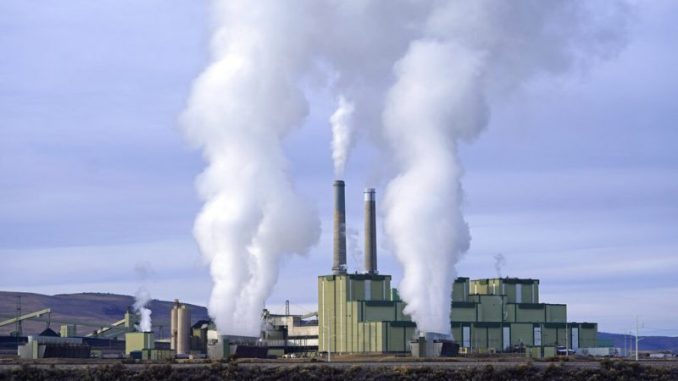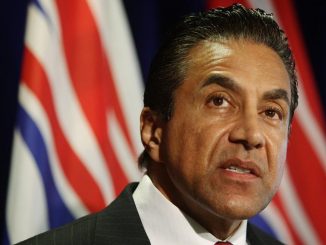

FILE – Steam billows from a coal-fired power plant Nov. 18, 2021, in Craig, Colo. The Supreme Court on Thursday, June 30, 2022, voted 6-3, with conservatives in the majority, that the Clean Air Act does not give the Environmental Protection Agency broad authority to regulate greenhouse gas emissions from power plants. (AP Photo/Rick Bowmer, File)
OAN NEWSROOM
UPDATED 8:20 AM PT – Friday, July 1, 2022
The Supreme Court ruled that the Clean Air Act does not give the EPA broad or expansive powers to regulate carbon emissions, in turn, leaving it up to states. In a six to three vote on Thursday, the high court decided the executive agency could not impose regulations on states that restrict carbon emissions to encourage a transfer to renewable energy.
The decision was met with praise from Republicans who argued the EPA could not implement such regulations nationally, while Democrats viewed it as a step backwards in fighting so-called climate change. West Virginia Attorney General Patrick Morrisey, who spearheaded the legal challenge, called the decision a huge victory because it reaffirms the concept of separation of powers.
“We want to make sure that the Biden agenda is limited by basis of what Congress authorized these agencies,” Morrisey. “What a concept that is and this should not be considered to be anything other than consistent with the Constitution, the rule of law, and our separation of powers.”
Meanwhile across the aisle, several Democrat governors vowed to double down on their efforts to fight so-called climate change. Washington Governor Jay Inslee (D) expressed disappointment in the decision and said state and local governments will have to pick up where the executive branch left off.
“We have to accelerate our efforts to reduce carbon pollution in the state of Washington in the upcoming years and that’s necessary because the federal government now is going to be, frankly, much less effective in restraining pollution, which means more of that burden is going to be on our shoulders,” said Inslee. “And we are willing to accept that because Washington State is not going to allow climate change to swallow our state.”
Inslee did not clarify what he plans to do in light of the ruling. However, California Governor (D) took a more direct approach by announcing on Twitter that he will be signing a $54 billion climate fighting plan.
“The idea that the US Supreme Court moved to take away one of the most significant and historically powerful tools to address the ravages of climate change is incomprehensible,” asserted Newsom. “We’ve got to wake up to what’s going on, Supreme Court. And we’ve got to double down, quadruple down here in California and in blue states all across America.”
This Supreme Court is hell bent on turning back the clock and ignoring reality. Now, they have kneecapped the federal government’s ability to tackle climate change.
Today, I’m signing a $54 BILLION climate-fighting plan. CA will keep leading the way. pic.twitter.com/QhJfA2DofE
— Gavin Newsom (@GavinNewsom) June 30, 2022
In the meantime, Democrat lawmakers are making a push to pass legislation codifying the EPA’s authority.





Be the first to comment